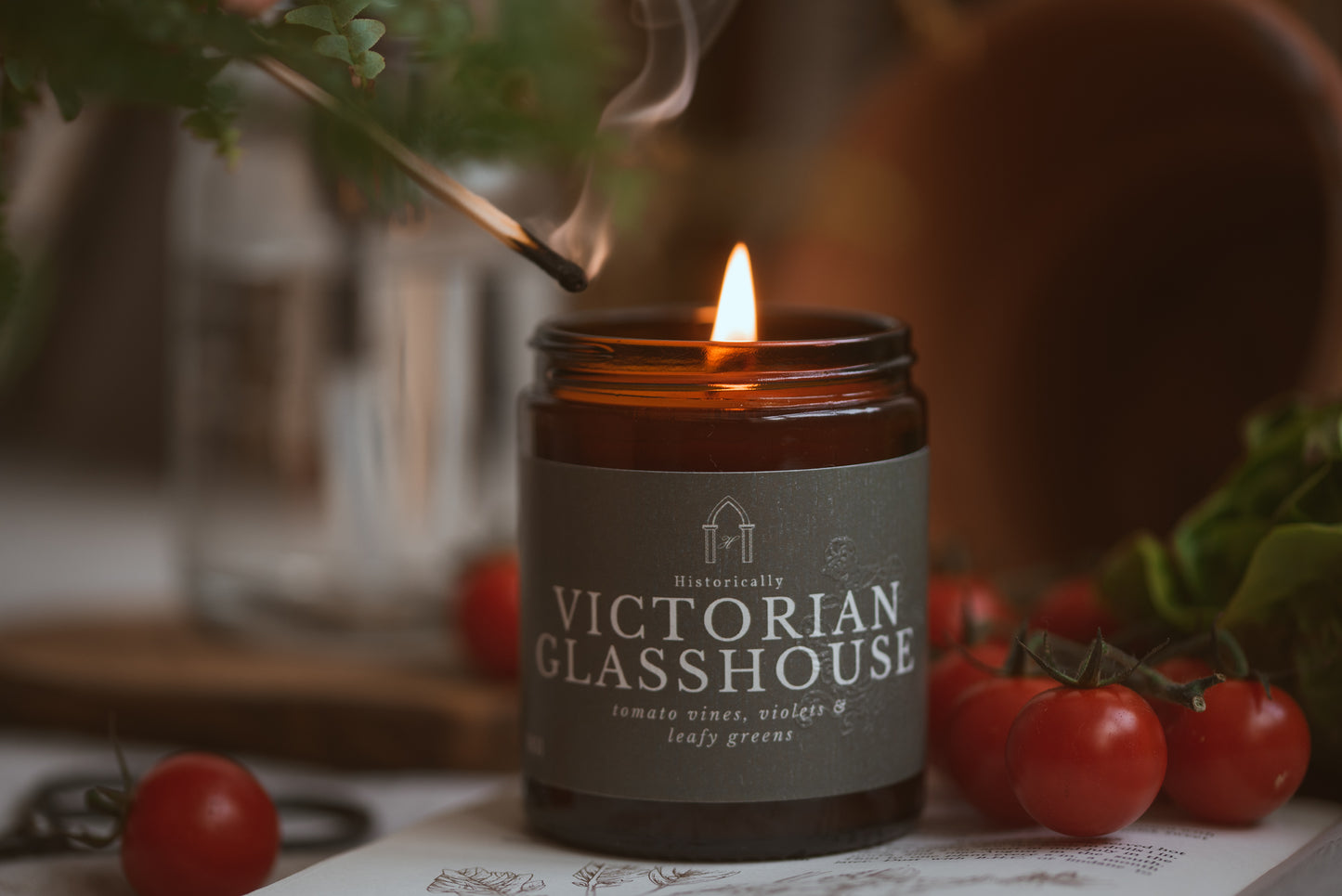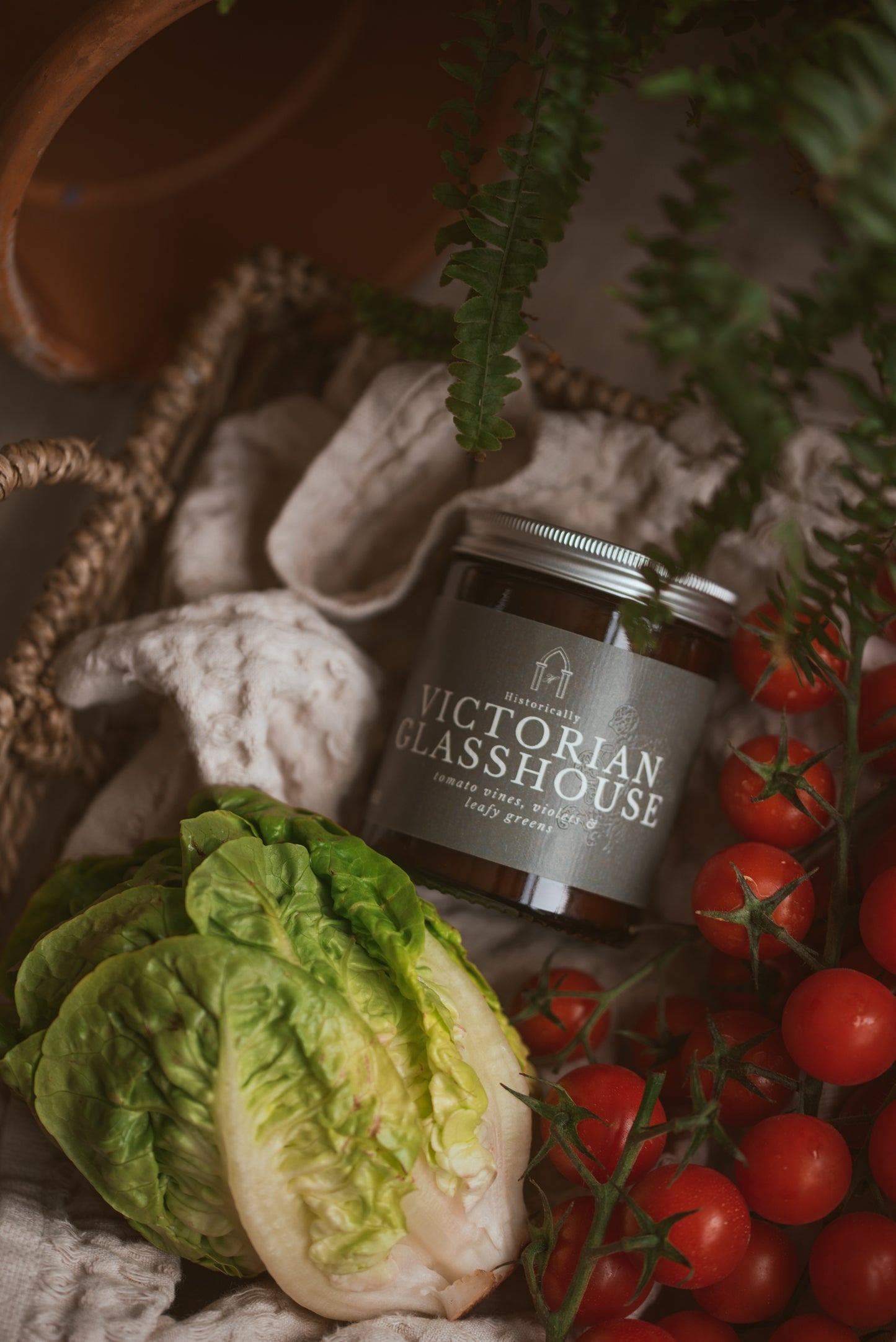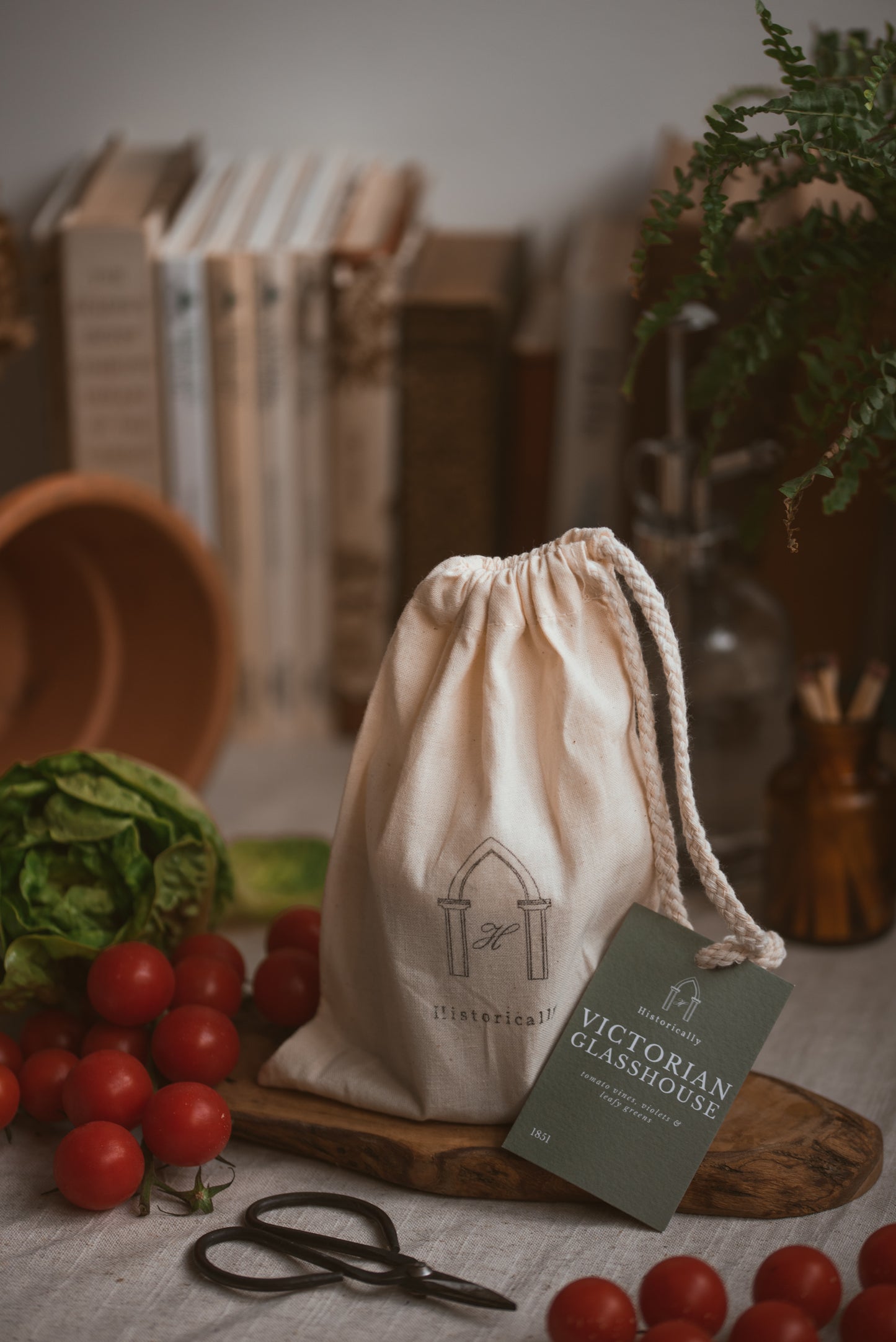Historically
Victorian Glasshouse
Victorian Glasshouse
Couldn't load pickup availability
Victorian Glasshouse Verdure.
Step into the lush tranquility of a Victorian glasshouse, where the innovation of England’s 19th-century horticultural architecture allowed exotic plants to flourish. This candle captures the essence of that era with the fresh, earthy aroma of tomato vines, intertwined with delicate violets and a breath of leafy greens. It evokes a time when these glass structures symbolized both scientific progress and the beauty of cultivated nature, bringing the outdoors inside in a display of botanical wonder.
Share
Scent Notes
Scent Notes
tomato vines, violets & leafy greens
Delivery & Returns
Delivery & Returns
Dispatch times
Our candles are made to order and most will take between 1-7 business days to dispatch.
However, if you are wanting your order sooner or for a specific date please get in touch (via email or in the message box at checkout) and we can sort something out for you!
Delivery Times
We currently offer standard delivery with Royal Mail 2nd class which should arrive between 2-3 days after dispatch and Royal Mail 1st class which should arrive between 1-2 days after dispatch.
NOTE: Please note that during the months of November and December we use Royal Mail Tracked. This is more expensive than normal but we have found means that your parcels are safe and get to you in time.
Shipping outside the UK
We are more than happy to ship to America and Australia, unfortunately we cannot ship to the EU at this time.
If you would like an order to be delivered to Australia please do not hesitate to contact us via our contact page, email or Instagram message and we will calculate the shipping costs for you and complete your order via invoice.
Please note that customers are responsible for paying any import VAT, taxes and fees.
What is your return policy?
Please note earrings cannot be returned and refunded for hygiene reasons.
We are happy to accept returns if you are unhappy with your purchase.
Contact us within: 14 days of delivery
Dispatch items back within: 30 days of delivery
Request a cancellation within: 24 hours of purchase
Buyers are responsible for return postage costs. If the item is not returned in its original condition, the buyer is responsible for any loss in value.
Item damaged in transit
Sometimes accidents happen.
If you receive a parcel that has been damaged in the post please send a picture to us showing the damage within 48 hours of your parcel being delivered and we can discuss options with you. No worries.
Safety Information
Safety Information
Contains Lemon oil, d-Limonene, Benzyl salicylate. May produce an allergic reaction.
I. Keep candles away from curtains, fabrics, furniture, and draughts.
II. Avoid placing candles under shelves; maintain a 3-foot (1-meter) clearance above.
III. Prevent contact with clothes and hair; place candles out of reach.
IV. Keep children and pets at a distance from candles.
V. Maintain at least 4 inches (10cm) between burning candles.
VI. Extinguish before moving; avoid objects falling into hot wax.
VII. Never leave burning candles unattended.
VIII. Safely extinguish with a snuffer or spoon, not by blowing.
IX. Double-check to ensure candles are completely out.
Scent History
Scent History
Tomato:
Tomatoes, originally from South America and initially deemed poisonous in Europe, gained acceptance during the Victorian era (1837-1901) due to the period's horticultural advancements and the British Empire's exchange of agricultural knowledge. Initially grown as ornamental plants, tomatoes benefitted from the Victorians' passion for gardening and innovations in glasshouse technology, which enabled their cultivation despite the British climate. By the latter part of the era, tomatoes had become a staple in British cuisine, appearing in various recipes and benefiting from new canning techniques that ensured their year-round availability. Thus, the Victorian era was pivotal in transforming tomatoes into a culinary mainstay.
Violets:
Violets, delicate and fragrant, gained particular prominence during the Victorian era (1837-1901) as symbols of modesty, faithfulness, and virtue in the popular language of flowers. The Victorians' passion for gardening and advancements in horticulture, such as improved greenhouse designs, enabled year-round cultivation and the development of new varieties. Violets featured prominently in Victorian fashion, personal care products like perfumes and sachets, and were celebrated in literature and poetry, symbolizing innocence and elegance. Thus, violets became emblematic of the era's refinement and romanticism.






